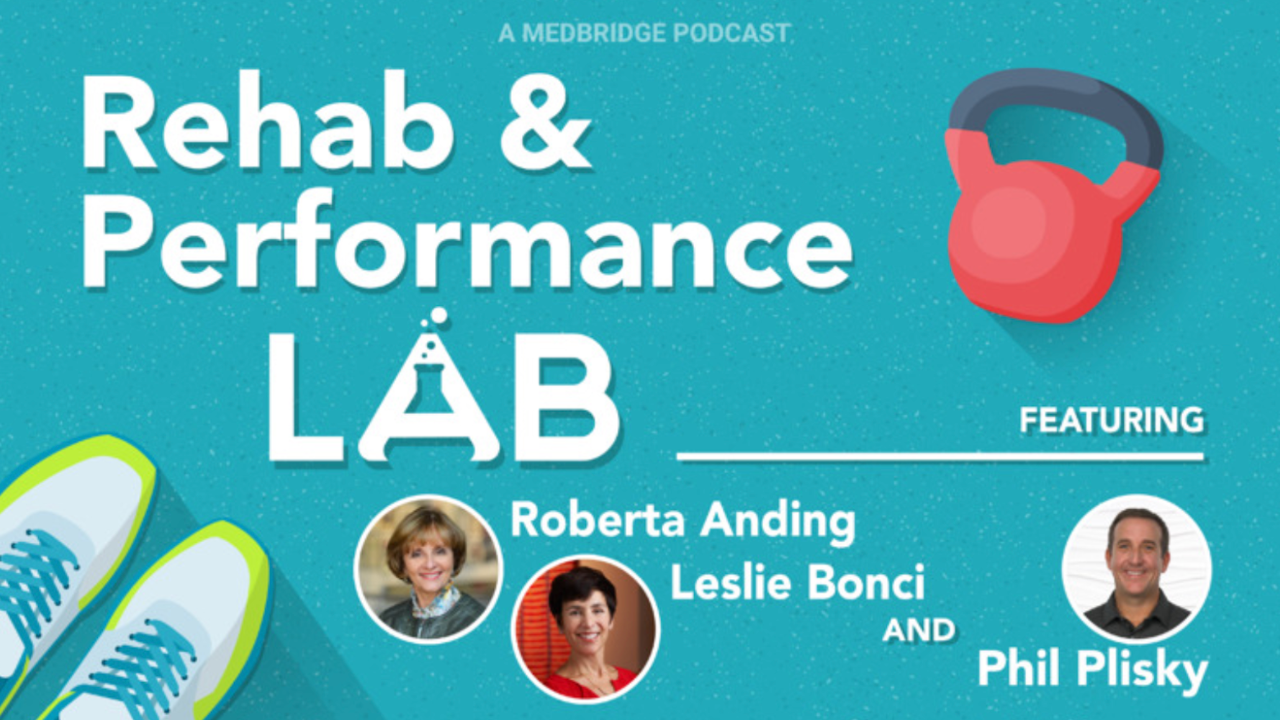
Creatine, Protein, & Stimulant Drinks: Systematically Sifting Fact from Fiction for Performance
In this episode of the Rehab & Performance Lab Podcast, we tackled the complex, and sometimes messy, world of nutrition – specifically, creatine, protein timing, and what we think are energy drinks. I was honored to be joined by Leslie Bonci and Roberta Anding, co-founders of Performance 365, who have decades of experience in professional sports nutrition.
Here are my big takeaways from this discussion:
How I now respond if an athlete asks me if they should take a certain supplement
This episode provided a great reframing technique for me. When an athlete asks about supplements like creatine or specific protein amounts, we can acknowledge it’s a great question that we will address. But first, we need to focus on the fundamental building blocks that must be in place even before considering supplements. This means discussing sleep quality, hydration status, overall nutrition, and work ethic. If the athlete isn’t the hardest worker in the weight room, creatine and protein really won’t matter. Address those core issues first, and then we can look at supplementation.
Is creatine safe for our athletes?
The research says: yes, creatine is safe for our athletes to use. It likely has more safety research than any other supplement out there. However, we have to look into the nuances: in my clinical and performance practice, I have observed that sometimes use can lead to dehydration, potentially causing a slight uptick in muscle injuries.
Creatine is Not the Magic Bullet: It’s an Additive, Not a Replacement
If you're looking at creatine, you have to realize that 90% of building muscle mass is the effort you’re putting into the weight room – not the hand-to-mouth activity, which is only about 10%. Creatine might be the 1%, but it’s an additive thing; it might be an advantage in an already optimized system, not something that optimizes a poor system. You have to ask that great litmus test question form Leslie, "If I go to your strength coach, are you the hardest working person in the weight room? If the answer is no, creatine really won't matter." We can't do a shortcut; we have to go right to the core: sleep, hydration, effort in the weight room, and eating well. Then creatine may be a consideration.
Is there benefit for older adults to take creatine?
The short answer is there probably is some benefit for older adults to take creatine because it offers mechanisms for brain health as well as decreasing the amount of muscle mass loss if it is combined with weightlifting. Find out more in the episode about how creatine can be helpful for our older adults.
If we used the real name of energy drinks, would it change our perspective on them?
This was a huge insight for me. We realized that "energy drinks" are actually stimulant drinks because, technically, they must contain calories to be classified as providing energy, and most are low or zero calories. Since they aren't technically providing energy, reframing them as stimulant drinks helps professionals frame conversations with athletes in a much better way. Tune into the episode to see how we talk about the research behind them.
Stimulant Drinks: The Danger of Normalization
We've somewhat normalized "energy drinks," but if we called them "stimulant pills," the response would be totally different. These drinks are delivering high doses of caffeine, often much faster than traditional coffee, causing things like increased heart rate, GI distress, and potential sleep disruption due to the long half-life of caffeine (four to eight hours). This is a huge gong moment. If you feel sluggish, we need to go back to the bottom line: Let's look at your sleep. Let's look at your hydration. Let's look at your nutrition. You’re probably not lacking a stimulant; you’re probably lacking in one of those other core areas.
Protein: How Much Should We Take?
We spent a lot of time debunking protein myths. The body doesn't respond well to spikes, so consistency is key: aiming for protein at breakfast, lunch, and dinner. Instead of chasing huge numbers, we should focus on quality and consistency. A simple starting point is aiming for a protein portion roughly the size of a smartphone at each meal. The quality of that protein is critical, especially the leucine content, which acts as the light switch for muscle protein anabolism. If you’re plant-based, you have to be intentional about getting considerably more plant protein to meet that need. Things like collagen in your coffee? That is extremely poor quality protein, extremely poor, and very pricey!
Be Systematic and Ask the Right Questions!
If you're a rehab professional, here are the core takeaways we want you to implement immediately:
- Ask Questions: You need to be that detective. Ask your patients, "Can you tell me what you had for breakfast this morning?". Asking about their hydration, nutrition, and constipation (especially post-op) is within your scope. If we don't ask the question, we aren't helping our patients get back to their state of wellness and performance.
- Focus on the Fundamentals: Whether we're talking about protein, creatine, or supplements, remember that a lot of things precede those questions that are infinitely more important. Focus on the big rocks first!
Ready to Master Athlete Performance?
Ultimately, our goal is to listen to our patients, optimize programs for their specific goals, and continually force ourselves to learn something new every week. We are all part of the patient's path to mastery. Your Path of Mastery begins here.
Are you looking to gain confidence in taking athletes from injury to high level performance? Looking to simplify the process and gain clarity? Wish you had a community to ask questions and bounce ideas off of? If you want to dive even deeper into systematic strengthening and high-level performance, be sure to join us. Check out the Coaches Club.
Join the Coaches Club Today








